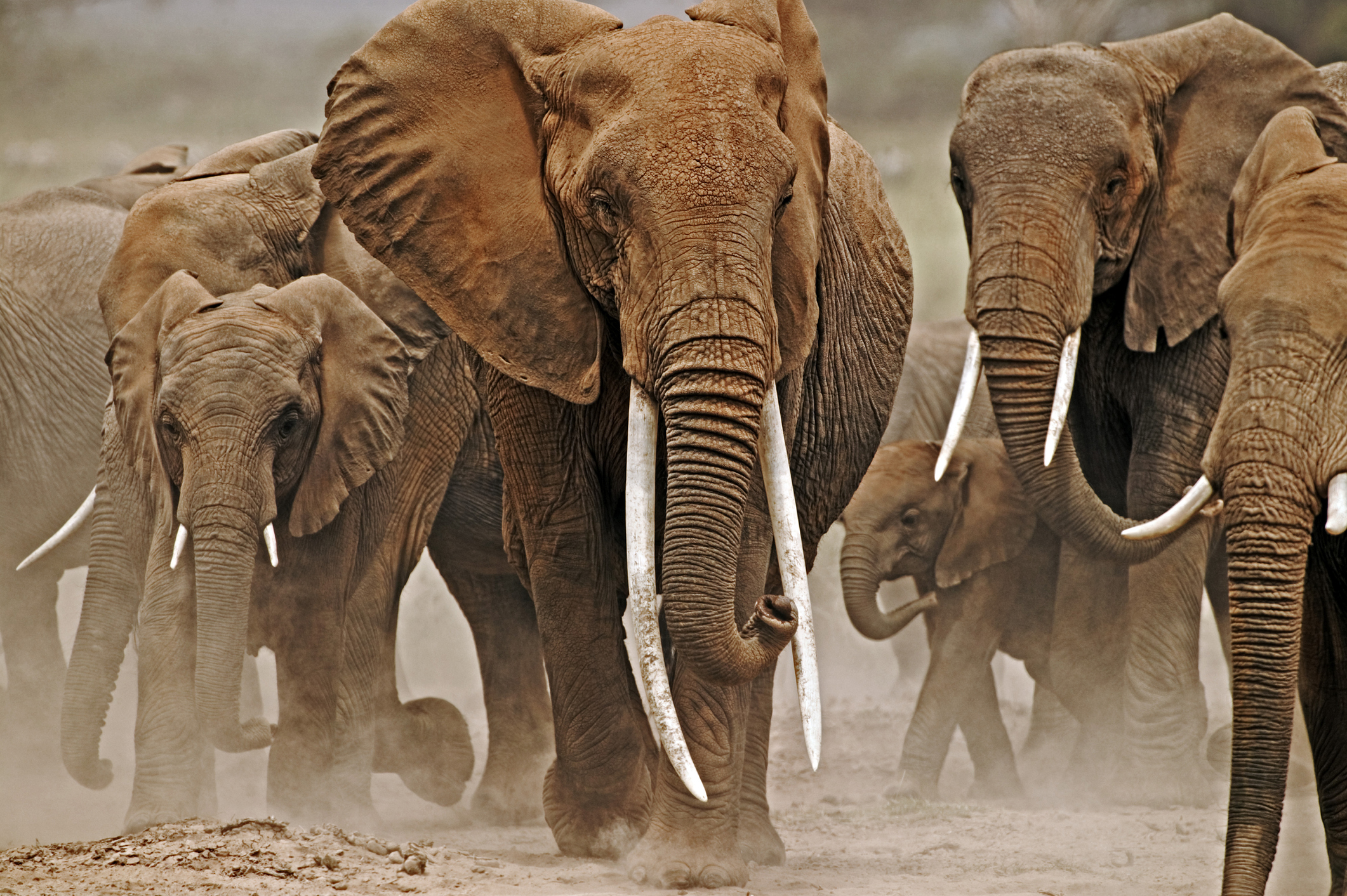Elephants give each other names — the 1st non-human animals to do so, study claims
Elephants in Kenya's Amboseli National Park appear to call to each other with individual names using low, complex "rumbles," a study has found.
Get the world’s most fascinating discoveries delivered straight to your inbox.
You are now subscribed
Your newsletter sign-up was successful
Want to add more newsletters?

Delivered Daily
Daily Newsletter
Sign up for the latest discoveries, groundbreaking research and fascinating breakthroughs that impact you and the wider world direct to your inbox.

Once a week
Life's Little Mysteries
Feed your curiosity with an exclusive mystery every week, solved with science and delivered direct to your inbox before it's seen anywhere else.

Once a week
How It Works
Sign up to our free science & technology newsletter for your weekly fix of fascinating articles, quick quizzes, amazing images, and more

Delivered daily
Space.com Newsletter
Breaking space news, the latest updates on rocket launches, skywatching events and more!

Once a month
Watch This Space
Sign up to our monthly entertainment newsletter to keep up with all our coverage of the latest sci-fi and space movies, tv shows, games and books.

Once a week
Night Sky This Week
Discover this week's must-see night sky events, moon phases, and stunning astrophotos. Sign up for our skywatching newsletter and explore the universe with us!
Join the club
Get full access to premium articles, exclusive features and a growing list of member rewards.
Name a famous elephant. Babar, perhaps? Or Dumbo? Memorable though these monikers may be to humans, they sound nothing like the names elephants give each other. If you're an elephant, your name is something more like a low, rumbling sound, scientists say.
In a new paper published Aug. 23 on the preprint server BioRxiv, researchers found that African savannah elephants (Loxodonta africana) made vocalizations specific to individuals in their social groups — and that the recipients responded accordingly. In short, elephants appear to have names for one another.
This makes them the first non-human animals to address each other in a manner that does not imitate the receiver's own call, as dolphins and parrots do. And while other animals do produce what are known as "referential calls" in order to identify objects just as predators or food, those calls are believed to be instinctive and do not require social learning.
Related: Chimps use military tactic only ever seen in humans before
In the new study, the team recorded 527 elephant calls in the greater Samburu ecosystem in northern Kenya and 98 calls in the Amboseli National Park in southern Kenya. The researchers then identified rumbles specific to 119 individuals by discerning which members of groups of female elephants and their offspring were separated from the herd at the time of each vocalization or approached when the call was made.
Using a computer model, the researchers correctly identified the receivers of 20.3% of the 625 recorded calls.
This marks a step forward in understanding how these highly intelligent animals communicate.
Get the world’s most fascinating discoveries delivered straight to your inbox.
"There's a contact rumble, there's an anti-predator rumble, there's a greeting rumble. If you look at a spectrogram, they all look almost exactly the same, or exactly the same," Caitlin O'Connell-Rodwell, an elephant biologist at Harvard University Medical School who was not involved in the study, told Live Science. "That's why AI has been exciting. It allows us to really figure out what the elephants are honing in on."
As it turned out, the calls were not generic sounds aimed at, for example, younger elephants or mothers. They were distinct to the receiver. Even calls from different callers to the same receiver were similar — though the pattern was less obvious than it was between a single caller and receiver. This may be because rumbles encode multiple messages simultaneously, so the computer model may not have been able to pick out the "name" used in each call, the authors wrote in the study.
"It just highlights the complexity of what's going on," O'Connell-Rodwell said. "And we're not skilled enough at what those measurements should be to figure out what's going on."
The researchers also found that elephants responded more strongly to recordings of calls originally addressed to them than to calls addressed to other elephants, further supporting their findings.
"The real value of this paper is that it shows how elephants are navigating through a large landscape and can still keep in touch with specific individuals," O'Connell-Rodwell said. "It allows them to spread out much further and still have very close tabs on individuals, not just the group. It's not just like, I'm sending out a ping. Somebody else is sending out a ping. It's much more sophisticated than that."

Richard Pallardy is a freelance science writer based in Chicago. He has written for such publications as National Geographic, Science Magazine, New Scientist, and Discover Magazine.
 Live Science Plus
Live Science Plus











